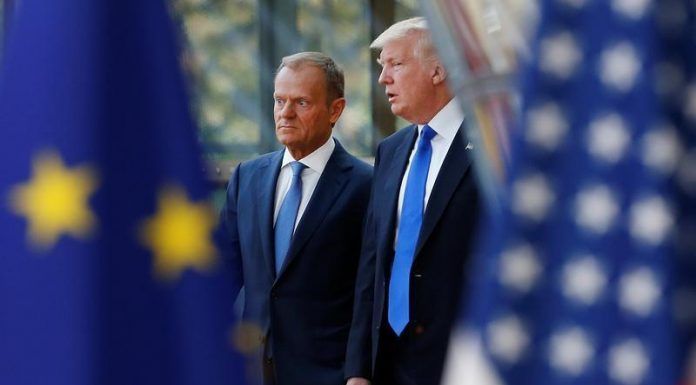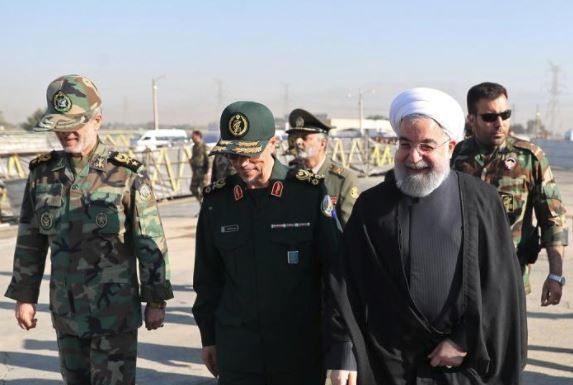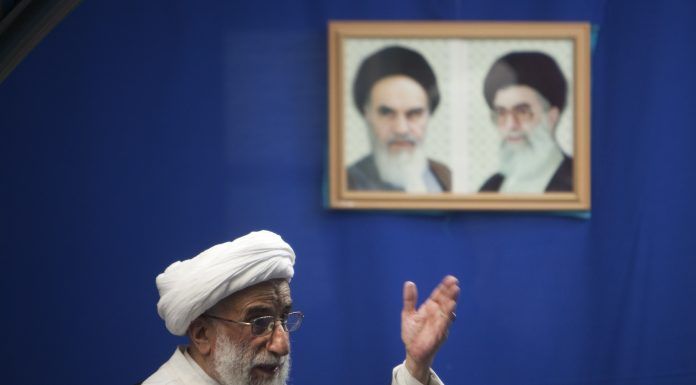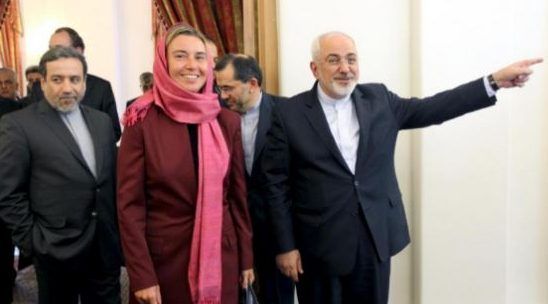By Robin Emmott and John Irish
BRUSSELS/PARIS, Jan 18 (Reuters) – In Tehran on Jan. 8 during a meeting with European envoys, Iranian officials abruptly stood up, walked out and slammed the door in an extraordinary break with protocol.
The French, British, German, Danish, Dutch, and Belgian diplomats in the Iranian foreign ministry room had incensed the officials with a message that Europe could no longer tolerate ballistic missile tests in Iran and assassination plots on European soil, according to four EU diplomats.
“There was a lot of drama, they didn’t like it, but we felt we had to convey our serious concerns,” one of the diplomats said. “It shows the relationship is becoming more tense,” a second said.
An Iranian official declined to comment on the meeting.
The next day, the European Union imposed its first sanctions on Iran since world powers agreed the 2015 Vienna nuclear arms control deal with Tehran.
The sanctions were largely symbolic but the stormy meeting encapsulated the unexpected shift in European diplomacy since the end of last year. Smaller, more dovish EU countries have joined France and Britain in a harder stance on Tehran, including considering new economic sanctions, diplomats say.
Those could include asset freezes and travel bans on Iran’s Revolutionary Guards and Iranians developing the Islamic Republic’s ballistic missile programme, three diplomats said.
The new approach moves Europe closer to U.S. President Donald Trump’s policy of isolating Iran with tough sanctions even though European governments still support the 2015 Vienna deal from which he withdrew in May.
Although there are diverging views in Europe, the shift could have consequences for President Hassan Rouhani’s government as it looks to European capitals to salvage that deal.
It could also strengthen anti-Western sentiment in Iran and lead to more aggressive Iranian moves around the Middle East, where the Islamic Republic is involved in proxy wars with its main regional rival Saudi Arabia.
Iran‘s firing of short-range ballistic missiles into Syria on Sept. 30, missile tests and a satellite launch this month have niggled Western powers.
For Europe, alleged assassination plots by Iran on French and Danish soil in 2018 were the last straw, diplomats say.
Tehran denies the plots and says the missile tests are purely defensive.
“The accusations against Iran over the past few months have awoken a few countries in Europe that were against a tougher line on Iran,” a European-based Middle East diplomat said.
The same day as the meeting, the Netherlands publicly blamed Iran for killings on its soil in 2015 and 2017. Tehran denies any involvement. Then on Jan. 9, the EU designated a unit of Iran‘s intelligence ministry a terrorist organisation, froze its assets and those of two men.
“Take the Dutch for example. They had kept very quiet until the Danish attack and now they are more hawkish than the French,” said the diplomat.
Alarmed by Trump’s “America First” policy, Europe considered his May 8 decision to pull out of the Iran accord a severe setback but Iran‘s international ambitions appear to offer Brussels and Washington a chance to work more closely.
A U.S. State Department official said there was now “a growing international consensus” on the range of Iranian threats.
“The U.S. welcomes Europe’s efforts to counter Iranian terrorism on European soil, its missile launches, human rights abuses, and other threats,” the official said.
DIALOGUE FALTERS
As the Trump administration accused Iran last year of harbouring nuclear ambitions and fomenting instability in the Middle East through its support for militant groups in Syria, Iraq, Lebanon, and Yemen, the EU sought dialogue with Tehran.
At meetings between European and Iranian diplomats last year, Britain, France, Germany and Italy, pressed for gestures on Iran‘s role in Syria’s war and for help to end the conflict in Yemen.
But multiple bilateral talks on the ballistic missile programme have yielded no results.
The EU tried to show Iran that compliance with the nuclear accord would still mean economic benefits despite Trump’s decision to reimpose U.S. sanctions and choke off Iranian oil exports by pressuring U.S. allies.
The European Union is set to officially launch a mechanism, the special purpose vehicle (SPV) to trade with Iran later this month but it will not be operational for several months. It will be registered in France, run by a German and likely to include Britain as a shareholder.
“There’s a feeling of frustration among Britain, France and Germany, and others, after the first phase of diplomacy with Iran,” another senior EU diplomat said. “We thought we could get some effort from the Iranians in several areas.”
Iran says Europe may not be able to safeguard the nuclear deal anyway and accused European officials of dragging their feet.
Iranian Deputy Foreign Minister and senior nuclear negotiator Abbas Araqchi said last week “operational steps” were needed from Europe as political support not enough.
Ayatollah Ahmad Jannati, head of Iran‘s powerful Assembly of Experts said on Thursday Europe “would do nothing in our interest.”
“The Europeans are worse than the Americans. If not, they are not any better,” he said, state TV reported.
EU DISAGREEMENTS
Last March, as part of efforts to convince Trump to stick to the nuclear deal, France, Britain and Germany proposed asset freezes and travel bans on the IRGC and Iranian companies and groups developing the missile programme, according to a document seen by Reuters.
Now, a similar set of measures is being prepared, three diplomats say.
“We’d prefer not to take these measures, but they need to stop trying to kill people on our territory and over the last three years they have beefed up their ballistic programme,” said one senior European diplomat.
The diplomats say getting all 28 EU members to agree will take time.
The EU’s top diplomat Federica Mogherini, who helped seal the 2015 deal, is wary of moving too fast for fear of provoking a complete collapse of the accord, four diplomats said.
EU foreign ministers planned to issue a rare joint statement on Jan. 21 about what they say is Iran‘s interference in the region and calling for an end to missile tests. Diplomats said Mogherini wants to see the SPV established first.
An EU official denied any split in policy between Mogherini and EU governments, saying the statement will be published as soon as the SPV is launched.
EU diplomats said eastern European governments could also go too far against Iran to please Trump in return for security guarantees against Russia.
EU diplomats said there was a risk that a two-day conference in Poland in February focused on the Middle East, particularly Iran, convened by U.S. Secretary of State Mike Pompeo, could divide eastern and western Europe.
Mogherini is unable to attend due to another official engagement, an EU official said, and it is not clear at what level France, Britain and Germany will be represented.
“There are clearly risks in attending,” another diplomat said. “While we don’t think Iran will withdraw from the nuclear deal, we don’t need to force them into the abyss and deepen an arms race in the Middle East.”
(Additional reporting by Parisa Hafezi in Dubai and Arshad Mohammed in Washington; editing by Anna Willard)





